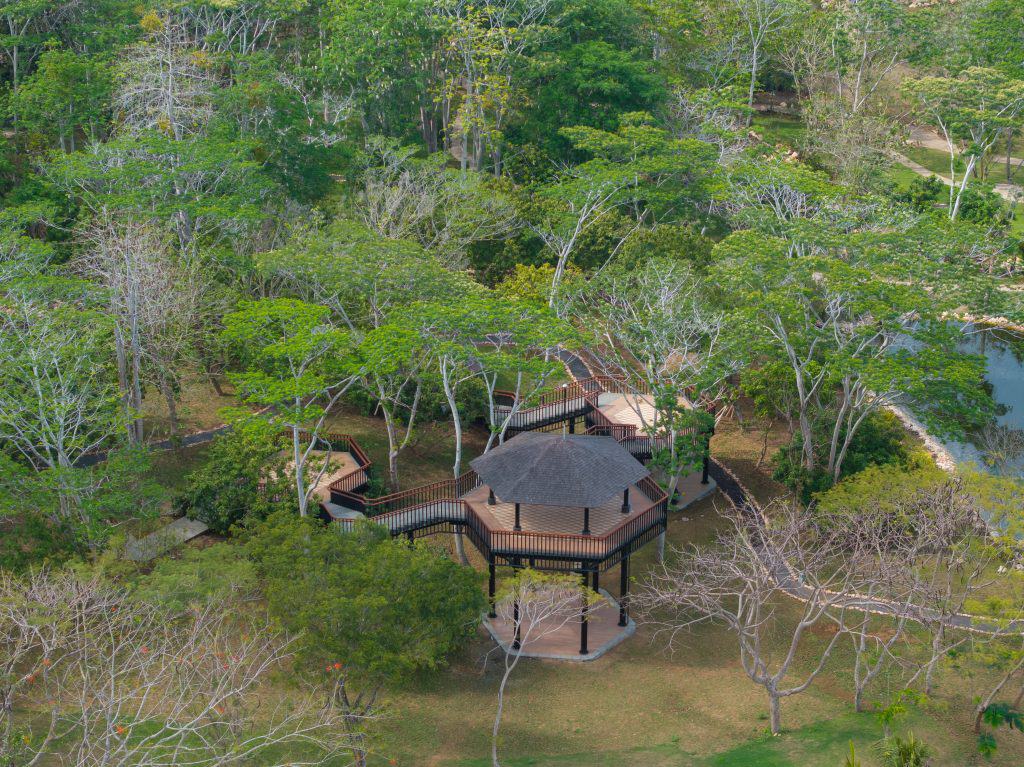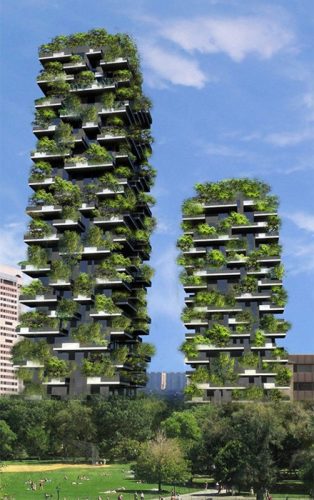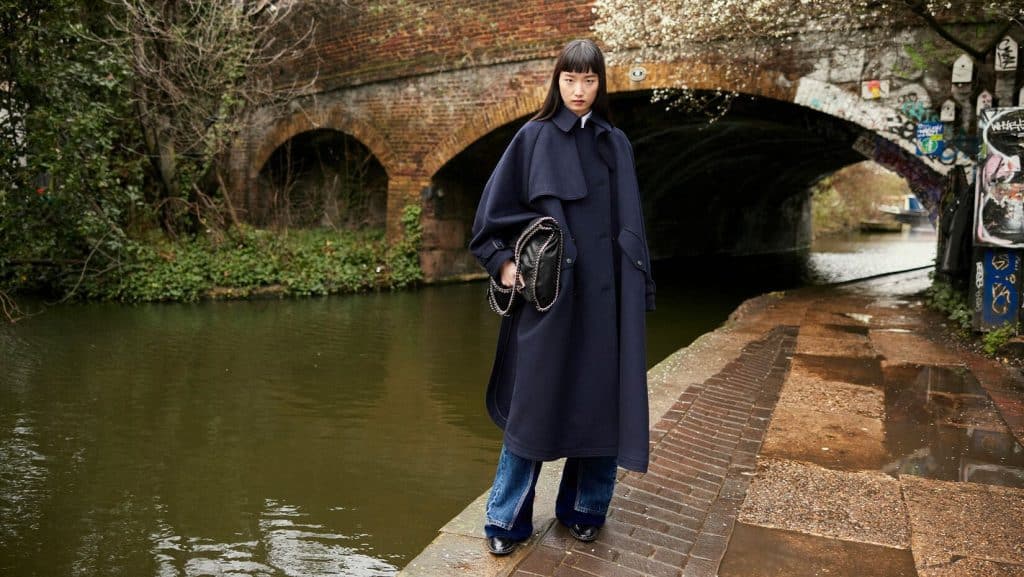The world of avant-garde lifestyle has always been a stage for innovation, creativity, and radical shifts. At the intersection of art, design, and technology, the avant-garde spirit continues to push boundaries, crafting spaces, experiences, and concepts that challenge and redefine our everyday perceptions.

As the world faces a growing need for sustainability, the avant-garde movement is finding its new purpose—melding ecological responsibility with futuristic visions of travel, food, and living.
In this journey through the future of avant-garde lifestyle, we explore how the hotels we stay in, the food we eat, and the way we live are about to be revolutionized.
Redefining Luxury: The Avant-Garde Hotel Experience
The conventional idea of luxury is being redefined by hoteliers who dare to experiment with space, materials, and sustainability, creating immersive and deeply personalized experiences that break away from the opulence of the past. Takeaways would be experienced like checking into a hotel room that has no walls, no typical roof structure, but rather is enveloped by towering trees or is submerged below sea level with marine life swimming overhead. This is not science fiction, but a glimpse into the future of avant-garde travel and hospitality.
For decades, luxury hotels were defined by their indulgence—crystal chandeliers, marble floors, and extravagant amenities. But in the era of avant-garde hospitality, luxury is no longer about excess; it’s about the experience. The future is taking travellers to unexpected places, both figuratively and literally, with hotels nestled in uncharted territories or designed to interact harmoniously with their surroundings. Avant-garde hotels are not just places to sleep; they are works of art, environmental sanctuaries, and hubs of futuristic innovation.
Take, for instance, the rise of eco-resorts that marry environmental sustainability with avant-garde design. These resorts redefine the idea of luxury by incorporating renewable energy, biodegradable materials, and conservation-focused architecture. Picture an island retreat powered entirely by solar energy, with villas made from reclaimed wood and sustainable materials that blend seamlessly into the landscape. The experience is one of minimal environmental impact yet maximal comfort and beauty, offering travellers a sense of connection to both nature and cutting-edge design.

Recently Ayana Bali, the island’s premier integrated resort, set the bar for luxury eco-tourism higher with the opening of Tevana Garden. With over six hectares of land, it has created a garden oasis featuring flowing streams, sparkling waterfalls, and local white limestone formations, to offer a sensory nature experience. Through its walking paths guests connect in an unparalleled way through the island’s rich biodiversity with over 80 species of tropical flora.
In urban settings, the future of hotels is equally daring. Avant-garde architects are designing towering structures that not only shape city skylines but also rethink the very purpose of buildings. Architects are reimaging skyscrapers wrapped in vertical forests or city hotels that double as greenhouses, growing food for their guests on-site. The fusion of nature and technology will characterize the avant-garde hospitality of the future. Guests won’t just stay in a building; they’ll be immersed in a self-sustaining ecosystem that nourishes the environment as much as it pampers its occupants.
Furthermore, the concept of travel itself is evolving. Soon, avant-garde hospitality will move away from the cookie-cutter experience of generic hotel rooms toward hyper-personalized stays. AI and virtual reality will allow travellers to customize every aspect of their visit, from the room’s temperature and ambience to the artwork on the walls. Hotels will adapt to guests’ needs in real time, creating environments that feel not only luxurious but also deeply personal and unique. No two stays will ever be the same.
In the culturally rich town of Thanjavur, the heritage Svatma Hotel embodies an avant-garde approach to hospitality, seamlessly blending traditional Indian heritage with modern eco-consciousness. The meticulously crafted rooms, with balconies and contemporary aesthetics, offer a perfect balance of history and innovation. Here regional cuisine is elevated with high-quality vegetarian and vegan options, embracing global trends like plant proteins and meat replacements, while staying rooted in Tamil Nadu’s rich culinary tradition. Wellness at Svatma offers expert-led yoga and meditative practices, a sound therapy room and a spa providing luxurious treatments.
At The Brando resort in French Polynesia, luxury goes hand in hand with sustainability. This avant-garde eco-resort runs entirely on renewable energy, including solar power and coconut oil biofuel. Each villa features sustainable construction using local materials, while the hotel’s air-conditioning system is powered by seawater. This resort redefines luxury by focusing on preservation, creating a place where guests can experience an untouched tropical paradise while minimizing their environmental footprint.
Similarly, Atmantan Wellness Resort in Pune, India redefines hospitality by focusing on healing and holistic wellness. Built on eco-friendly principles, it offers wellness programs while ensuring minimal environmental impact, with rainwater harvesting systems and organic, farm-to-table food offerings. Atmantan shows how wellness and environmental responsibility can be seamlessly blended to create a new type of luxury retreat.
As the lines between luxury and sustainability blur, avant-garde hospitality is rewriting the rules.
One of the most intriguing innovations is the development of “nomadic hotels,” which challenge the very notion of permanence. These avant-garde retreats are designed to be portable, set up in remote and beautiful locations, and dismantled without leaving a trace. Travellers can stay in luxury tents in the heart of the desert, on glaciers, or in lush rainforests, enjoying the ultimate immersive experience while also preserving the natural beauty of their surroundings. The White Desert’s eco-luxury camp in Antarctica offers guests the chance to sleep in luxury pods on one of the world’s most remote continents, providing an experience that blends luxury with an extreme environment.
The hotels of tomorrow will not just be places to visit—they will be transformative experiences that engage all senses, inspire awe, and create memories that last a lifetime.
A New Era in Culinary Arts: The Avant-Garde on Your Plate
While travel may satisfy the soul, food delights the senses. In the avant-garde culinary world, food is no longer just about nourishment; it is an artistic expression, a scientific endeavour, and a gateway to new cultural experiences. The future of cuisine will see chefs pushing the limits of what is possible – from molecular gastronomy, sustainable practices, and technology to craft dining experiences that are as thought-provoking as they are delicious.
At the heart of avant-garde culinary arts is the philosophy of challenging expectations. For decades, food has followed certain predictable patterns, but avant-garde chefs have taken it upon themselves to surprise, bewilder, and excite their diners. They deconstruct classic dishes, reimagining them in completely new ways that are almost unrecognizable yet tantalizing to the taste buds.
Restaurants of the future will not just serve food—they will curate entire experiences. Imagine dining in complete darkness, relying on taste, smell, and texture to guide your meal, or participating in a dinner where virtual reality transports you to the origin of the dish, immersing you in the culture and landscape that inspired it.
Consider the rise of multi-sensory dining and culinary robotics, where technology and gastronomy merge to create immersive, futuristic experiences. Chefs are now incorporating AI-driven flavour pairings, 3D-printed food, and edible augmented reality, where diners interact with their plates through visual and sensory projections. Techniques like ultrasound cooking, which uses sound waves to alter textures, and electric food stimulation, which enhances taste sensations through mild electrical currents, are pushing the boundaries of what food can be, creating a dining experience that engages all senses in unprecedented ways.
Ultraviolet by Paul Pairet in Shanghai is perhaps one of the best examples of a multisensory dining experience. The restaurant immerses diners in a futuristic atmosphere where technology plays a central role—flavours are enhanced by synchronized lighting, sound, and scent, creating an unforgettable experience. This multi-sensory experience at a secret location that combines innovative and surprising dishes with lights, sounds and scents will give you quite an adrenaline rush.
Pushing the boundaries of what is considered food is the increasing orbit of molecular gastronomy, where science and cooking merge textures and flavours and techniques like spherification, where liquids are transformed into solid orbs that burst with flavour, or the use of liquid nitrogen to create instantly frozen delights, are being taken to the next stage.

Always serving up something new is celebrity chef Gaggan Anand’s avant-garde take on Indian cuisine. His eponymous restaurant in Bangkok, which was ranked among the best in the world, is known for its deconstruction of traditional Indian dishes using molecular gastronomy. Dishes like yoghurt explosions and charcoal bites challenge diners’ perceptions of familiar flavours, while also focusing on sustainability and local sourcing.
These culinary creations play with our senses, defying the conventional idea of a meal. In the future, the dining experience will become even more interactive.
Sustainability is at the heart of avant-garde cuisine. The shift to “farm-to-table” dining, where restaurants collaborate directly with local farmers to ensure that their ingredients are fresh, seasonal, and sustainably sourced is an instance. The future of avant-garde dining will focus on hyper-local ingredients, with chefs exploring their backyards for inspiration and incorporating foraged items into their menus.
Chefs are increasingly turning to plant-based proteins, locally sourced ingredients, and zero-waste kitchens to create meals that are as kind to the planet as they are to the palate. Expect to see more innovative uses of ingredients that were once considered humble or even undesirable, such as seaweed, insects, and food by-products, transformed into gourmet dishes that excite the senses while promoting sustainability.
Chefs are exploring zero-waste cooking, where every part of an ingredient is used. The Narisawa restaurant in Tokyo‘s satoyama-inspired menu reflects both the biodiversity of Japan and avant-garde culinary methods.
In India, chefs like Manu Chandra of Toast & Tonic in Bengaluru are also innovating with foraged and seasonal ingredients locally sourced and experimental cooking. For instance, using jackfruit as a meat substitute or combining traditional South Indian spices with Western culinary techniques. Similarly, Masque in Mumbai, blends farm-to-table principles with molecular techniques, taking guests on a gastronomic journey that highlights the richness of India’s seasonal produce.
Renowned avant-garde chefs like Ferran Adrià, Heston Blumenthal, and René Redzepi have already begun to transform the culinary landscape, but the next generation will take their innovations even further. Future chefs will incorporate AI and robotics into their kitchens, enabling precision cooking and allowing for experimentation that was previously unimaginable. Diners may soon find themselves served by robots that can craft dishes with the precision and artistry of a human chef—or perhaps even surpass them.
The avant-garde culinary world will also continue to explore the fusion of cultures, blending global flavours in unexpected ways. Expect to see more cross-cultural collaborations where chefs from different countries come together to create hybrid dishes that combine the best of both worlds. The result will be meals that tell stories, transport diners to distant lands, and break down cultural barriers through the universal language of food.
Living the Avant-Garde Life: Sustainability Meets Innovation
Beyond the realms of travel and dining, avant-garde principles are infiltrating our daily lives in ways that will reshape how we live, dress, and interact with the world. The lifestyle of the future embraces environmental consciousness, technology, and a minimalist approach to luxury. It’s a movement that encourages us to live not just for ourselves but for the planet, all while maintaining a sense of individuality and artistic expression.
The international township of Auroville in Tamil Nadu, India, is a living example of an avant-garde lifestyle. This experimental community is centred around sustainability, with its architecture, energy systems, and agricultural practices all designed to create minimal environmental impact. Homes are built from eco-friendly materials, solar power is widely used, and the community places a strong emphasis on reforestation and organic farming.
In urban spaces, avant-garde living is taking shape in innovative, smart cities. NEOM in Saudi Arabia is a prime example of an avant-garde urban experiment, envisioned as a futuristic megacity powered entirely by renewable energy. The Line in NEOM has wellness at its core. The Line is designed as a zero-carbon city that spans 170 kilometres, with all essential services within a 5-minute walk. It aims to revolutionize urban living by integrating health and wellness into every facet of daily life.
Interior design will move away from extravagance and clutter toward minimalist yet functional spaces that encourage a sense of peace and connection to nature. Organic materials like bamboo, cork, and reclaimed wood will take centre stage, alongside futuristic elements like smart glass that changes opacity depending on the time of day or your mood. Avant-garde homes will be more than just places to live—they will be environments that foster well-being, creativity, and sustainability.
A great example of combining organic materials with futuristic technology is Bosco Verticale in Milan, Italy. This vertical forest uses reclaimed wood and integrates over 20,000 plants on its façade, improving air quality and promoting biodiversity.

In terms of smart glass technology, The Edge building in Amsterdam showcases windows that adjust opacity based on sunlight and temperature, optimizing energy efficiency. Similarly, PARKROYAL Collection Pickering in Singapore combines reclaimed materials like bamboo with smart systems that adjust lighting and temperature throughout the day.
In the world of fashion, avant-garde designers are challenging the fast-fashion model and advocating for sustainable, ethically sourced clothing. The next wave of avant-garde fashion will focus on garments that are not only visually striking but also environmentally responsible. Expect to see clothes made from innovative materials like biodegradable fabrics, recycled ocean plastics, and lab-grown leather. These designs will not only push the boundaries of aesthetics but will also push us toward a more sustainable and thoughtful approach to consumption.
In fashion, Ka-Sha by Karishma Shahani Khan, based in Pune, is an Indian fashion label that focuses on slow fashion, upcycling, and sustainable materials. Avant-garde fashion here is not just about pushing stylistic boundaries but also about changing how we think about consumption and waste in fashion.

Globally, Stella McCartney has been a leader in avant-garde, eco-conscious fashion, incorporating vegan and sustainable materials into her designs. She exemplifies how the avant-garde mindset can reshape industries, encouraging consumers to think critically about the environmental impact of their clothing choices.
The avant-garde wardrobe of the future will be versatile, with garments designed to be worn in multiple ways or adapted for different occasions. Imagine a dress that transforms into a jacket with the flick of a zipper, or shoes that can be customized and reassembled to suit your style.
Another exciting shift in avant-garde fashion is the integration of technology. Wearable tech, which was once confined to fitness trackers and smartwatches, is evolving into something far more integrated into our daily attire. You will be able to buy a jacket that adjusts its temperature based on the weather, or clothing that charges your devices while you wear it.
A brave new world
Rather than accumulating material possessions, the avant-garde lifestyle promotes the idea of accumulating experiences. This shift has already begun with the rise of the sharing economy, where people are opting to rent items like cars, homes, and even clothes rather than owning them. In the future, this trend will expand, with more services that allow people to access what they need, when they need it, without the burden of ownership.
As the world becomes more connected, the avant-garde lifestyle will also embrace digital minimalism. In an age where technology permeates every aspect of life, the future will see a backlash against constant connectivity. People will seek ways to unplug and focus on what truly matters—human relationships, personal development, and mindfulness. Avant-garde living spaces will likely incorporate “digital detox zones,” areas designed to be free from technology, where people can recharge mentally and emotionally.
In this brave new world of avant-garde living, wellness will take centre stage. Health and wellness will no longer be confined to gyms and spas; they will become integrated into every aspect of life. Homes, workplaces, and even public spaces will be designed to promote physical and mental well-being. Imagine parks equipped with meditation pods, office buildings with yoga studios, and homes with air purification systems that filter out pollutants. The future of avant-garde wellness will be holistic, addressing the needs of both body and mind.
Avant-garde living is also about rethinking our relationship with time. The fast-paced nature of modern life has led to a growing interest in slow living—a movement that encourages people to take their time, savour moments, and live more intentionally. This philosophy will influence everything from the way we eat and travel to the way we interact with others. In the future, we can expect to see a resurgence of practices like communal dining, where meals are shared with family and friends, fostering a sense of connection and community.
The Avant-Garde Revolution: A Future Reimagined
As we look toward the future, it’s clear that the next wave of avant-garde trends will be defined by sustainability, innovation, and a deep respect for the planet. Whether it’s through the eco-friendly hotels we stay in, the experimental cuisine we enjoy, or the minimalist homes we live in, the avant-garde lifestyle is set to reshape our future in exciting and unexpected ways.
At its core, the avant-garde movement has always been about challenging conventions and daring to imagine a world that doesn’t yet exist. As we stand on the precipice of a new era, one thing is clear: the future of avant-garde living is not only bold and beautiful but also mindful, responsible, and deeply connected to the world we inhabit. From avant-garde hotels that redefine what it means to travel to culinary experiences that challenge our perceptions of food, and lifestyles that emphasize sustainability and mindfulness, the future is one of infinite possibilities.
The avant-garde ethos has always been about going beyond what is expected, pushing the boundaries of creativity and innovation. It’s a future where the avant-garde spirit will not only survive but thrive, inspiring us to live in ways that are as thoughtful as they are forward-thinking.
In the end, the avant-garde is not just a trend—it’s a way of life, a philosophy that asks us to imagine what could be and to create a world where innovation and responsibility go hand in hand. The next wave of avant-garde trends will continue to surprise and delight, challenging us to live above and beyond what we once thought possible.
Read More: Latest



